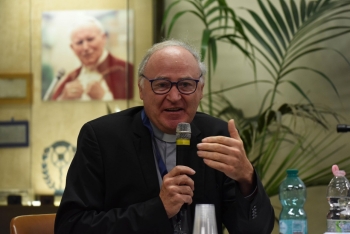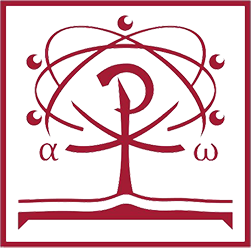Artificial Life. A debate with our Chancellor

Trento (Italy), March 22. Msgr. Renzo Pegoraro, Chancellor of the Pontifical Academy for Life, participated in the annual public dialogue series organized by the diocese of Trento (March 11). This year's theme is “Sarete come Dei. L’essere umano costruttore di se stesso” ("You Will be Like Gods. The Human Being as Builder of Himself”). Msgr. Pegoraro participated in the second of the two dialogues, entitled “Vita artificiale” (Artificial Life). The other member of the dialogue was prof. Maria Chiara Carrozza, the President of the National Research Council of Italy.
While Carrozza discussed how AI could help the healthcare field as long as certain regulatory criteria relating to safety and consent are in place, Pegoraro focused on how technology affects human life. He believes that we have biological, social, spiritual, and political dimensions to our lives and that we should base our approach to life on the understanding that it is a gift, a responsibility, and a mystery. Life exists before us and it is a gift that we receive; additionally, it is a call to responsibility because it requires our commitment. Despite the important knowledge about human life that we can obtain through science, we should discard the expectation that we can explain everything; instead, we should respect that life is finally a mystery beyond our analysis.
To counter the inclination that we have nowadays of quantifying and qualifying life, Msgr. Pegoraro asserts that we must recognize that life is firstly wonderful because “we exist”, life is present. We should be in amazement of it and should consider how we can recognize the basic value of life; moreover, we must consider how we can care for and promote human life.
With a perspective based on wonder of and care for life, we can evaluate the development of knowledge and technology and discern their impacts on human life. Msgr. Pegoraro proposes that the distinctions between nature, culture, and artificiality in human life are not easy to define since over time we change our lifestyle and how we work. The rhythms of our lives are influenced by advances in technology and science.
As we formulate a responsible approach to technology, Msgr. Pegoraro suggests that this be done in a transdisciplinary way, with a focus on quality dialogue between scientists, psychologists, philosophers, and theologians. He believes that we must be prudent as we consider the consequences of technology especially on human life but also on the environment, and he raised the example of the effects of genetically modified organisms on agriculture, which can disrupt environmental equilibrium and the use of which does not change the reality that the of the price and distribution of food is often defined by the market. Respect, prudence and cooperation can help us to take care of life, human life and all life.
(By Kathryn Bowers, Notre Dame University Rome. Original text: English)



